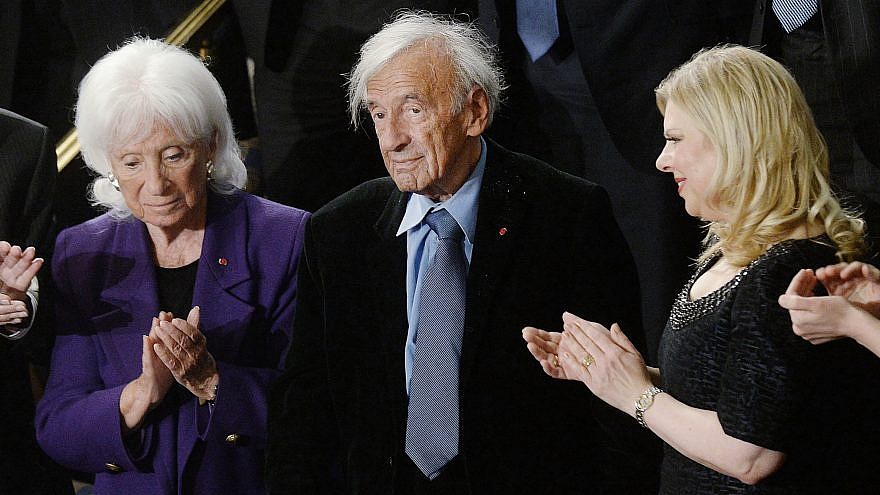Elie Wiesel was great not because of his prodigious talents as a writer or his profound wisdom as a thinker. He was great not because of his sublime character, which combined the dignity of nobility with the humility of a person of the deepest faith. Elie Wiesel was certainly all of these things. But what made him truly great was that he possessed the one virtue that makes all the other virtues possible—courage. He possessed the courage to speak truth to power. He showed that courage in telling President Reagan not to go to Bitburg, in pleading with President Clinton to act to stop the genocide in Bosnia, and in opposing President Obama’s nuclear deal with Iran. An author, Nobel Peace Prize Laureate, and the world’s most famous Holocaust survivor, Wiesel brought recognition of the horrors of the Holocaust to people around the world, imploring them to never forget. His writings, especially Night, inspire millions with stories of strength and perseverance.
Wiesel believed that after the Holocaust, the State of Israel became critical to Jewish identity and survival. As he put it, “It’s clear to me that one can’t be Jewish without Israel.” He forcefully defended Israel in writing and in his speeches. In his Nobel Lecture in 1986, Wiesel proclaimed his belief in Israel’s intrinsic connection to Jewish peoplehood. “I trust Israel,” he said, “for I have faith in the Jewish people. Let Israel be given a chance, let hatred and danger be removed from her horizons, and there will be peace in and around the Holy Land.”
His philosophy, recognizing the Holocaust as a fundamental component of modern Jewish identity, did not win immediate acceptance in Israel. For some time, Israeli society did not embrace the full narrative of the Holocaust, preferring to focus instead on isolated instances of resistance, such as the Warsaw Ghetto Uprising. With time, and with the absorption of large numbers of immigrants who had lost family members in the Holocaust, Israelis came increasingly to appreciate Wiesel’s writings. He made such a powerful impression on Israeli society that he was offered the Israeli Presidency by both Ehud Olmert and Benjamin Netanyahu; he declined both times.
Despite living outside of Israel, during times of war and conflict, Elie Wiesel was on the front lines of Israel advocacy. During Operation Protective Edge in 2014, he appeared in advertisements in some of the most popular newspapers in the United States, denouncing Hamas’ use of children as human shields. In March 2015, Wiesel attended Prime Minister Netanyahu’s speech to the U.S. Congress, lending his moral authority to those who opposed the nuclear deal with Iran, a regime that denies the Holocaust and threatens Israel with annihilation.
Elie Wiesel was both a man of the world and a man of his people— someone who understood that the two go hand in hand. Never accepting a separation between the State of Israel and the Jewish people, Wiesel believed fervently in both.


























